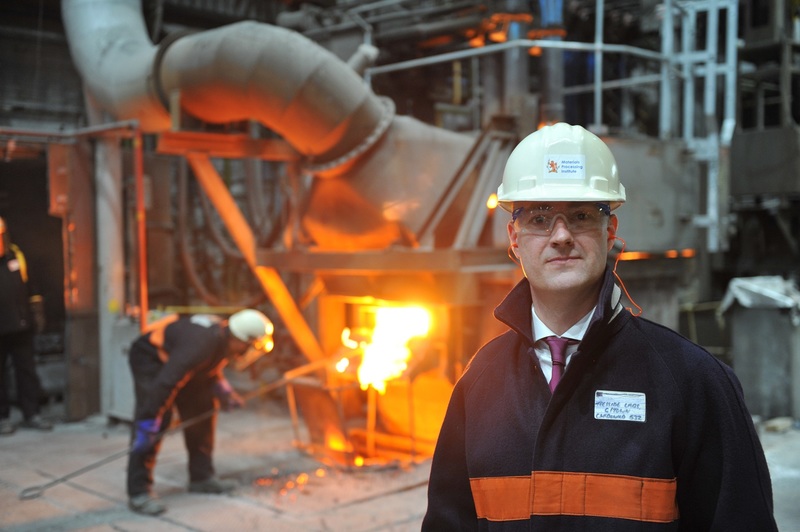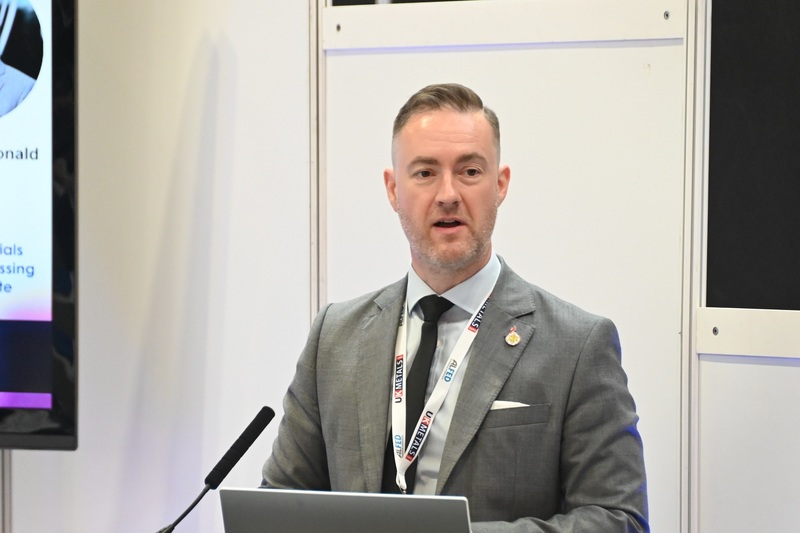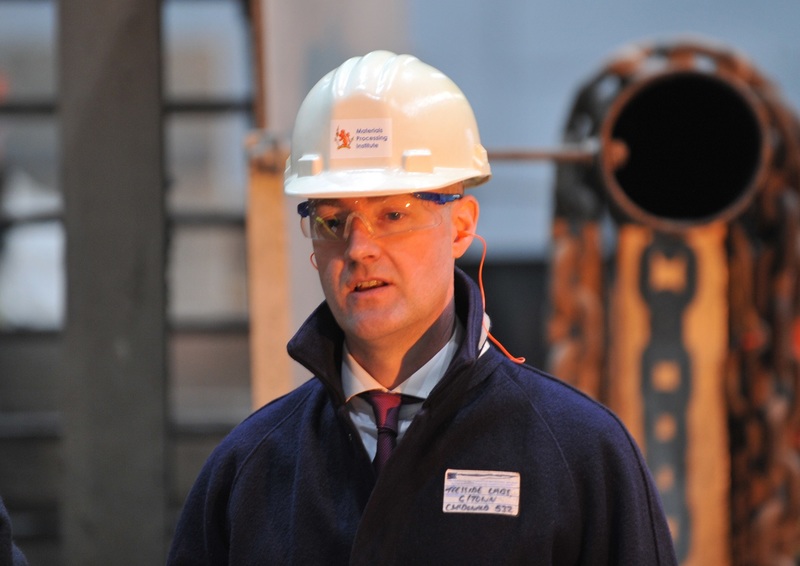Materials Processing Institute
Britain Needs Steel
by Chris McDonald, CEO of the Materials Processing Institute
Steelworkers and trade unions marched through Westminster shoulder to shoulder with representatives from the major steel companies and trade associations, all with a single message "Britain needs steel" - and we do.
Everyone everywhere needs steel. In the UK each and every adult consumes about a quarter of a tonne of steel every year and demand for steel continues to grow. In the next few years, we will see this demand accelerate, as we need ever more steel to go green, for offshore wind, electric vehicles, new nuclear power and hydrogen gas networks. We also need steel to protect our national interests. Whether submarines, ships, or civil infrastructure, if there is one thing, we have learned from COVID and the war in Ukraine, it is that international markets cannot be relied on to deliver essential goods - whatever the price.
We need steel to decarbonise our economy, but the biggest challenge for the steel industry is decarbonising itself.
Some progress on this is being made. In 2020 the Materials Processing Institute, based in Redcar, won the single biggest government investment in steel and metals innovation, a fund of £20m over five years. This has led to investment in new jobs and facilities at the Institute's campus and is already yielding results, in new and more efficient ways to process steel. This success demonstrates that the UK does have the capability to be a leader in the global steel industry, but doing the science isn't enough, we also need investment in new plant and equipment and that is proving to be the hard part.
I was the first person to put a figure on what it will cost to decarbonise the UK Steel industry. In 2021 I was quoted as saying that it would take £6bn and this is now the generally accepted figure. I also said that we could only win this investment if we followed the example of other countries and committed to funding half this cost from the public purse. The Labour Party have since made that commitment, whilst the Government are in talks with the two largest producers, Tata Steel in Port Talbot and British Steel in Scunthorpe, over how much cash might be available.
Such a decision cannot come soon enough. This week the Government's own Climate Change Committee reported that "there is no clear policy to decarbonise steel production". More than this, progress on industrial decarbonisation more generally has fallen well behind what is needed to achieve net zero by 2050.
In recent years, the UK has clapped itself on the back for leading the charge on decarbonisation, when in fact we have been offshoring - closing down domestic industry and importing goods instead. Some people believe that this is a natural part of a developing economy, moving from manufacturing to services, but it is not. It is a phenomenon most seen in the UK.
If you need evidence then look no further than Belgium, a country with a population only 15% that of the UK, but a steel industry of similar size. If the UK Steel industry were to match Belgium's, in terms of relative capacity, it would be six times bigger than it is now. Think of the difference that would make in places like Teesside - thousands of highly productive, well paid jobs.
It is not difficult to see why the UK Steel industry has declined. It is the most high profile casualty of the gradual waning in our manufacturing competitiveness. High energy prices for sure are an issue, but investors in steel and manufacturing are in it for the long term and they need to know that government is in it for the long term too. For too long the UK has lacked an industrial strategy.
Potential investors in industries from steel to silicon chips, batteries to battleships, are being feted by governments in Europe, the Far East and most notably with President Biden's Inflation Reduction Act, in the USA. There is a global market place and a global price for winning this investment and if we want to remain one of the leading developed nations in the world, then we need to take part too.
There is huge potential here for the UK, with the promise of tens of thousands of high paid jobs in these newly transformed industries. We have a great manufacturing mindset, a can-do attitude, a skilled workforce, world leading innovation, a strong reputation and excellent supporting services, but this will only work if we also have a partnership between industry and government to deliver a UK industrial strategy.
This is a once in a century opportunity, let's make sure we grasp it!
ENDS
ISSUED ON BEHALF OF MATERIALS PROCESSING INSTITUTE
MEDIA CONTACT: Andrew Douglas 01325 363 436
Photo caption: Chris McDonald, CEO of the Materials Processing Institute
Notes to editors:
Materials Processing Institute
The Materials Processing Institute is a research and innovation centre serving global steel and materials organisations that work in advanced materials, industrial decarbonisation, the circular economy, and digital technologies.
The Institute has served as the UK’s national steel innovation centre since 1944 having been set up by Sir Winston Churchill’s wartime government just before D-Day to equip the British steel industry for post-war reconstruction. It will celebrate its 80th anniversary in 2024.
Through collaboration with its customers, the Institute provides a range of technology and R&D based services and consultancy. It also has pilot and demonstration facilities and an SME Technology Centre to support supply chain businesses with the development of new technologies and products.
Works with: steel, metals and alloys, chemical processes, aerospace and defence, energy, mining and quarrying, construction, rail, transport, and infrastructure, offshore, subsea, and nuclear.
The Materials Processing Institute includes developments funded through Tees Valley Combined Authority, through the Local Growth Fund (Growth Deal).
back to Materials Processing Institute


